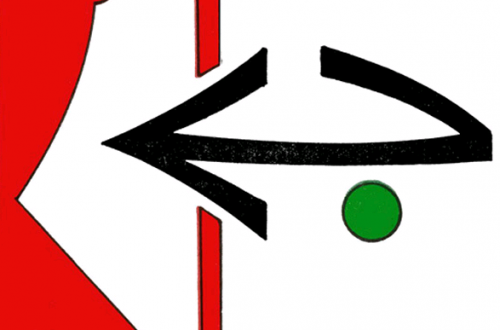This is a guest post by DaveM
A haggard and burnt-out looking George Galloway, flush from the success of his Viva Jordania – Bradford to Aqaba – convoy, made an appearance on tv station Al Mayadeen which operates out of Beirut.
In this clip he gave the usual set of anti-imperialist and pan-Arab cliches, raised the spectre of a new Sykes Picot agreement, accused that the Syrian rebels of being servants of the Crusader powers and ended it all by bizarrely turning into some sort of Anthony Robbins type motivational speaker.
There’s nothing in it you haven’t already heard a thousand times before. Though this time it seemed a bit flat as if he just phoned it in.
What is interesting is that he wasn’t a merely a guest on Al Mayadeen, but it looks like he’ll be hosting a programme called “A Free World”
Prior to launch the station received some news coverage, among those covering it was the Associated Press
A new pan-Arab TV station that went on the air Monday courts viewers who see mainstream coverage of the political upheaval sweeping the Middle East as biased against the regimes in Syria and Iran and their close ally in Lebanon, the powerful Shiite militant group Hezbollah.
The Beirut-based station Al-Mayadeen, Arabic for The Squares, hopes to counter the influence of regional media heavyweights like Al-Jazeera and Al-Arabiya, both funded by oil-rich Sunni Gulf Arab countries that have backed the uprising against Syrian President Bashar Assad. It also promises to support the Palestinian cause and all forms of “resistance” — a term in Mideast parlance usually used to describe Hezbollah and other groups that fight Israel.
Al-Mayadeen is headed by Ghassan bin Jiddo, a well-known Tunisian journalist who quit Qatar-based Al-Jazeera last year to protest what he contended was one-sided reporting in favor of the Syrian opposition. Since the Syrian revolt began 15 months ago, some Arabs have accused Al Jazeera of whipping up public opinion against Assad’s regime and playing on sectarian tensions.
“I am against any media that may deviate to the level of provocation, incitement and sedition,” bin Jiddo has said of his resignation from Al-Jazeera.
Bin Jiddo has pledged a balanced and professional approach at Al-Mayadeen, but his background has skeptics wondering whether the station will simply be a mouthpiece for Iran and Syria. Bin Jiddo used to lead Al-Jazeera’s Beirut operations and was the only journalist who was granted an interview by Hezbollah leader Sheik Hassan Nasrallah during the 2006 war between Israel and Hezbollah.“We do not speak in the name of Iran or the Syrian regime, we are a completely independent channel which reflects reality as it is,” bin Jiddo said at a press conference in Beirut this week.
There has been much speculation over the source of funding for Al-Mayadeen, which employs about 300 workers. Bin Jiddo has denied it was receiving money from any country, saying it is funded by businessmen whose identities he would not disclose.
So who’s behind Al Mayadeen and who’s funding it? These are questions some people have been asking but as of yet there aren’t any clear answers.
However it’s clear who’s in front of the channel.
The three main faces of the station are channel head Ghassan bin Jiddo (seen here as a guest on Syrian channel Addounia),director of news Sami Kalieb (seen here as a guest on Syrian State TV) both of whom used to work for Al Jazeera. The third is Nayef Krayem, the station’s general director.
Ghassan bin Jiddo is infamous for his birthday cake presentation to child killer Samir Kuntar
An action which resulted in an apology from the Al Jazeera’s general director at the time as it was in violation of the tv station’s code of ethics. This from a tv station in which Yusuf al Qaradawi has his own show and one of its journalists was imprisoned on terrorism charges.
Sami Kalieb is the husband of Luna Chebel, who has served as a media advisor to the Assads
Nayef Krayem, station director, previously worked as Director of Al-Manar.
Journalist Ali Hashim who works for the station used to work for Al Jazeera, prior to that he worked for BBC Arabic and before that for Al Manar, Hizbullah’s TV station
France 24 reported on Al Mayadeen and attempted to find out the actual editorial line of the station, its relationship with Syria and who exactly is funding it. Needless to say the station was tight lipped on the subject.
The mystery financer
But there’s just one problem: (Sami) Kleib’s wife is the communication adviser to Syria’s embattled President Bashar al-Assad, a sensitive subject that he refuses to discuss. The question of the channel’s financing is similarly awkward: Kleib himself says the channel is funded by Arab businessmen, but he does not provide any details.
Omar Ibhais, a freelance Lebanese TV producer, claims that he has learned, from inside sources whom he refuses to name, about the new channel’s funding source.
“Al Mayadeen channel is a joint venture between the Iranians and Rami Makhlouf, who is the cousin of President Bashar al-Assad,” says Ibhais, referring to the wealthy Syrian businessman who is believed to control as much as 60% of the Syrian economy through his web of business interests that include telecommunications, oil and gas, construction, banking, airlines and retail, according to the Financial Times.
Omar Ibhais’ sources are anonymous and they can’t be independently corroborated least of all by me, but the assumption of Iranian and Syrian funding behind the tv station, if true, appears to make the most sense. It certainly makes a lot more sense than funding from nameless “Arab businessmen”. The Arabic language news market is saturated and is the last place anybody would go to in order to make a profit, especially successful businessmen
Until Al Mayadeen tells us who’s funding it we can only speculate.
George Galloway already presents a weekly show on an Iranian regime funded tv channel.Will he soon be presenting a weekly show on another one?
Only Al Mayadeen knows.


